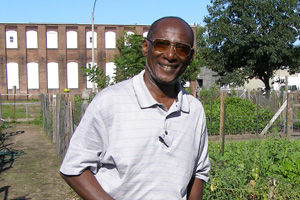This contribution discusses access and benefit sharing within the context of participatory plant breeding. It presents how Chinese farmers and breeders interact in relation to crop improvement and on-farm maintenance of plant genetic resources. Based on more than a decade of action research, a number of institutional changes were accomplished as a result of the interactions between national and provincial breeding institutes, rural development researchers and local maize farmers. Although the respective legislation in China is not yet adequately formulated, access and benefit sharing can still be addressed in contracts and by labelling products of a particular geographic origin.
Evolutionary populations: Living gene banks in farmers’ fields in Iran
Efforts to rapidly increase on-farm biodiversity are a matter of urgency in an era of climate change. To do so, family farmers need better access to the genetic material of research stations and gene banks. Collaboration with scientists who are willing and able to work together with farmers is crucial. The Evolutionary Plant Breeding programme in Iran is one example of how this can be done.
Seed banks and national policy in Brazil
Increasingly, seeds are the domain of professional breeders, agribusiness and policy makers. They decide what makes for a good variety and they develop legislation that excludes other varieties. Despite this,family farmer organisations and social movements in Paraíba,Brazil, have managed to strengthen decentralised farmerdriven seed selection and distribution systems and public seed policies. They may well be opening the way for another seed regime in the country, with its own access and benefit sharing mechanisms.
Potato breeding in the Netherlands: successful collaboration between farmers and commercial breeders
The Dutch potato breeding model, which involves a partnership between family farmers and commercial breeding companies in a modern, Western context, is unique. While there are other examples of collaborative relationships between farmers and breeders in Europe, the Dutch potato breeding model stands out in terms of its long track record, the involvement of the private sector, and the institutional integration of the relationship which up to today facilitates access to genetic materials and financial benefit sharing.
“A revolution of thought is necessary” – Interview with Cantave Jean-Baptiste
Interview > Cantave Jean-Baptiste is a Haitian agronomist and rural development practitioner with more than three decades of experience supporting sustainable agriculture and strengthening peasant organisations. He is Executive Director of Partenariat pour le Développement Local (PDL) in Haiti, and a founding member of Groundswell International. Farming Matters asked Mr Jean-Baptiste how family farmers can build resilience in Haiti, a country where an estimated 80% of the population lives in poverty.
Biointensive Agriculture Training Program in Kenya
Manor House Agricultural Center provides training in low input farming as an alternative to conventional methods, which are heavily reliant on external inputs. Farmers practicing biointensive farming techniques experience significant yield increases and improved soil fertility and grow more nutritious crops. Since 1984, over 100,000 farmers have received this training, and an estimated 200,000 households now use methods of biointensive agriculture.
Agroforestry to Improve Farm Productivity in Mali
A research project on improved fallows examined how short-term rotations of selected perennial tree and shrub species impact cereal yields and soil quality in subsistence maize cropping systems. The effects of improved fallows on maize yields were significant when combining a tree species (Gliricidia) and a nitrogen-fixing legume (Stylosanthes). Read more
Agroforesterie pour la sécurité alimentaire au Malawi
Le Malawi est confronté à une myriade de problèmes environnementaux, sociaux et sanitaires, y compris l’insécurité alimentaire, la dégradation des terres et la déforestation. Un programme d’agroforesterie promeut la plantation d’arbres pour augmenter les rendements des cultures dans les sols épuisés, lutter contre la déforestation et autonomiser les femmes.
Agroforestry for Food Security in Malawi
Malawi faces myriad of environmental, social, and human health challenges, including food insecurity, land degradation and deforestation. An agroforestry program promotes tree planting to increase crop yields in previously depleted soils, reverse deforestation, and empower women.
Read more
Agroecology and Water Harvesting in Zimbabwe
Since the late 1960s, Zephaniah Phiri Maseko has pioneered a unique, innovative vision for community and agricultural development through judicious water management; his system has been widely adopted across the country, increasing agricultural productivity and resilience in this semi-arid region.



